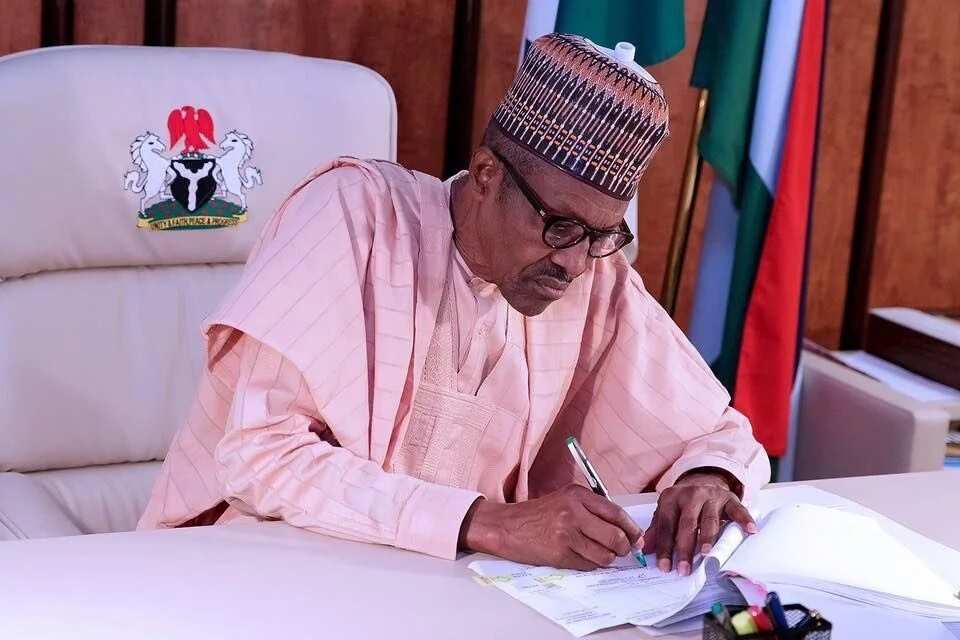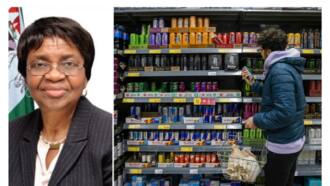Soft Drinks to Get More Expensive as Buhari Govt Imposes N10/Litre Excise Duty Despite Manufacturers Pleas
- The federal government lobbying for the reinstatement of excise duty on soft drinks, which was repealed in 1993 has been actualised
- The return of excise duty, according to minister of finance will help boost the economy and discourage excessive consumption of sugar beverages
- Manufacturers, on the other hand, feel it will affect their revenue and lead to a rise in soft drink prices
The federal government has introduced an excise duty of N10/litre on all non-alcoholic, carbonated and sweetened beverages a law repealed in 1993.
Zainab Ahmed, minister of finance, budget and national planning made the announcement during a public presentation of the 2022 Appropriation Act in Abuja on Wednesday January 5 2021.
According to The Cable, Ahmed said the excise duty was introduced in line with the Finance Act signed into law by President Muhammadu Buhari on December 31, 2021.

Source: Facebook
She also added that this might discourage excessive consumption of sugar beverages which contributes to diabetes, obesity among others.
PAY ATTENTION: Join Legit.ng Telegram channel! Never miss important updates!
Zainab words at the meeting:
“There’s now an excise duty of N10/ per litre imposed on all non-alcoholic and sweetened beverages.
“And this is to discourage excessive consumption of sugar in beverages which contributes to a number of health conditions including diabetes and obesity.
“But also used to raise excise duties and revenues for health-related and other critical expenditures.
“This is in line also with the 2022 budget priorities.”
Government lobby over the years
In April 2021, Hameed Ali, comptroller-general of the NCS made repeated calls for tax waivers for companies producing soft drinks in Nigeria to be removed.
Ali said:
“What we have been fighting for is that if alcohol beverages and tobacco are injurious to our health that is why the government decided to tax them, the carbonated drinks are equally injurious to our health and they should be taxed.
In 2019, also Zainab Ahmed, the minister of finance, had announced that the government may introduce excise duty on carbonated drinks.
The house of Representatives is not left out in the call to see the reintroduction of excise duty on soft drink.
Manufacturers plead
The Manufacturers Association of Nigeria (MAN) last year announced that players in the food industry could lose up to N1.9 trillion in revenue sales by 2025.
Specifically, the Chairman, Fruit Juice Producers branch of MAN, Mr Fred Chiazor that the new excise duty will bring about a 39.5 per cent loss, impact on jobs and supply chain.
He called for a suspension of the fiscal policy, noting that the proposed excise duty collection would also shrink the sector’s contribution to the GDP which currently represents 35 percent of manufacturing.
He said:
“Government can lose up to N197 billion in Value Added Tax (VAT), EIT fund and Collective Investment Trust (CIT) revenues occasioned by the drop in industry performance.”
He also noted that there could be a change in prices of soft drinks to offset the expected loss from the reintroduction.
Dangote, MTN Top List of Highest Tax-Paying Companies in Nigeria
Legit.ng had earlier revealed how much 13 Nigerian companies listed on the Nigerian Exchange Limited (NGX) remitted to the Nigerian government.
The Federal Inland Revenue Service (FIRS) is one of the collecting agencies and recently declared it exceeded its target in the first eight months of 2021.
Companies operating in Nigeria are meant to pay income tax, Education tax, National Information Technology Development Agency (NITDA) tax, and Nigeria Police Trust Fund levy.
Source: Legit.ng



